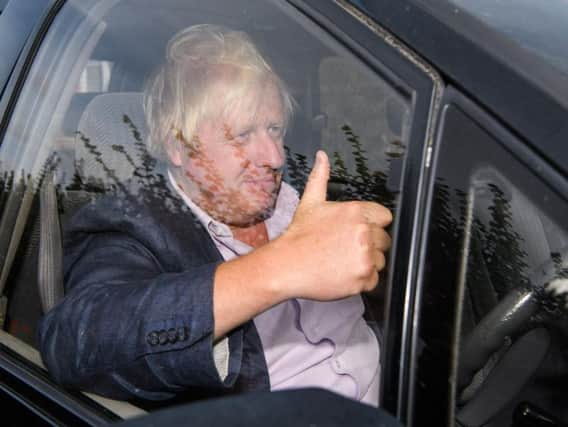Brexit Britain must realise it cannot stand alone in 21st century world – Alastair Stewart


To the victor belong the spoils, they say. The problem with Brexit is no one will or can or would want to claim the laurels of a miserable three-year slog.
What no one seems to be asking is whether this was always inevitable? There's an oversimplified myth that Yugoslavia kept a lid on decades of ethnic tensions in the Balkans which exploded in the 1990s. Is that the truth here? That the UK has been dealing with an underlying, visceral hatred directed towards the Continent?
Advertisement
Hide AdAdvertisement
Hide AdThe EU referendum was always a cerebral calculation. There never felt like there were the same passionate or even romanticised arguments to Leave or Remain as there were in the 2014 Scottish referendum. The greatest failure of Remain-supporting British politicians was not to make a defining statement of Churchillian quality as to what the EU stood for beyond mercantile access and free movement.
Even the EU's most prominent acolytes never managed to articulate how it worked to the UK public. Bluntly, it's confusing. It became even more complicated after successive treaties. From the European Economic Community to the present-day, the institution has been a banal feature in the background of our public life. It's why it's always been so easy (for the right and left in equal turn) to rage against bureaucratic diktats than to condemn what it stands for.
European citizens living and working in the UK and the Britons across Europe are the ones who've tried their hardest to define what it's all about. Even if you argue that the absence of any Western European conflict since 1945 is a stunning feat for a continent rarely at peace in the last 1,000 years, how often do people usually stop to marvel at the upward turn of history?
Sovereignty is largely a redundant myth in a globalised, digitised, mechanised world where the average person is more concerned with consumer power, the cheapest holiday and the fastest parcel delivery.
Second World War obsession
The world is shrinking, and yet there's never been an articulation as to the brave new world that Britain would sink her teeth into if it left the European market – all that matters is we do (or so the argument goes).
The UK's love for and near-obsession about all things related to the Second World War is a lasting imprint that's compounded the issue. As the former US Secretary of State Dean Acheson once said, Britain lost an empire and never found a role in the world. Look at our street names, our statues, even our government buildings and the regalia and panoply of the days when the sun never set on our empire remains intact. That's the legacy that haunts our politics.
Spain is very likely the next Brexit in waiting. Its financial access to the EU hasn't resolved its catastrophic economic woes, and already far-right parties are calling for a departure to restore "better days". Both countries are covered with monuments to their past imperial glories when they once shaped the world. Both have never found a comfortable seat for themselves at the global table because they're no longer at the head of it.
The Second World War and Brexit are bookends to a story, not quite finished, that tells of the loss of global pre-eminence. Europe's modern political and economic antecedents owe much to a war in which Britain lost status and power to help liberate most of Western Europe. The landscape since 1945 has barely changed, and neither has the political architecture that imbues the feeling that somehow, we can make things right again, with just a bit more welly.
A lonely archipelago
Advertisement
Hide AdAdvertisement
Hide AdOur view on Europe is rooted in a cultural memory of being unequivocally on the right side of history in the 1940s. No other event has so definitively or unambiguously superseded that fact. It's held up by endless television shows and films and books and infinite anecdotage of heroism and bravery in the face of crippling odds.
Brexit is an embarrassment because it is more to do with our reluctance to look an ancient, gruesome truth in the mirror. If we 'saved' Europe, why can we not accept that our future is in it, front and centre, as a global influencer and exemplar?
To create a meaningful Brexit settlement doesn't involve a 'deal' but a cold acceptance that international politics is no place for a lonely archipelago. There is no shame in this, and certainly nothing unpatriotic.
If nothing else, Britain's 46-year experiment inside the EU is only one part of a 1,000-year story of political, military, economic and social engagement which isn't going to stop because 'sovereignty', because 'independence', cannot exist in the interconnected 21st century.
To move past our current troubles, we must first accept the new global reality and ask, really, what are the best levers of influence to be a force for good? Isn't that what a good global citizen does?
Alastair Stewart is a freelance writer and public affairs consultant. He writes regular features on politics and history with a particular interest in the life of Sir Winston Churchill. Read more from Alastair at www.agjstewart.com and follow him on Twitter @agjstewart
